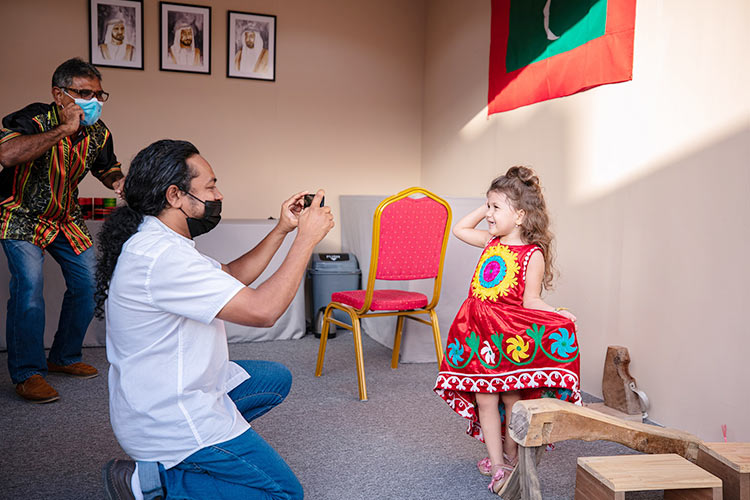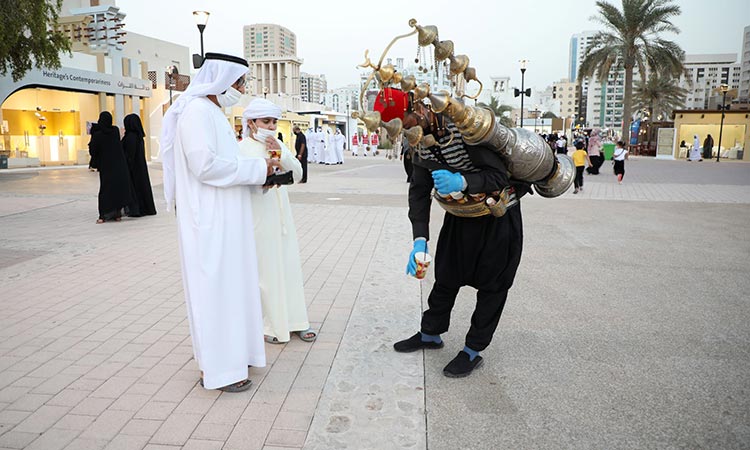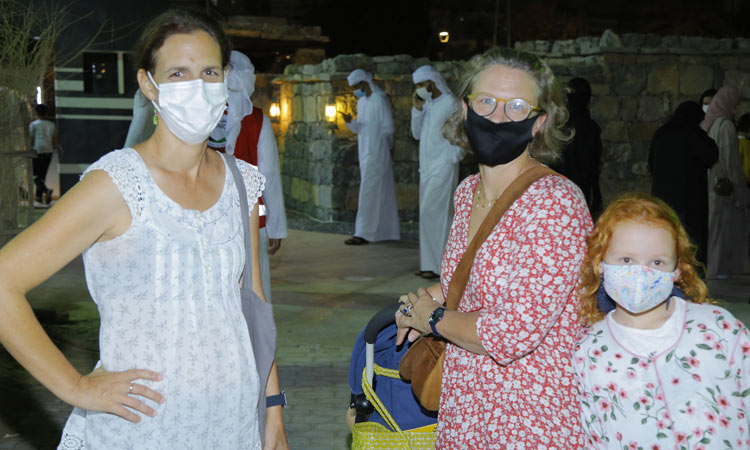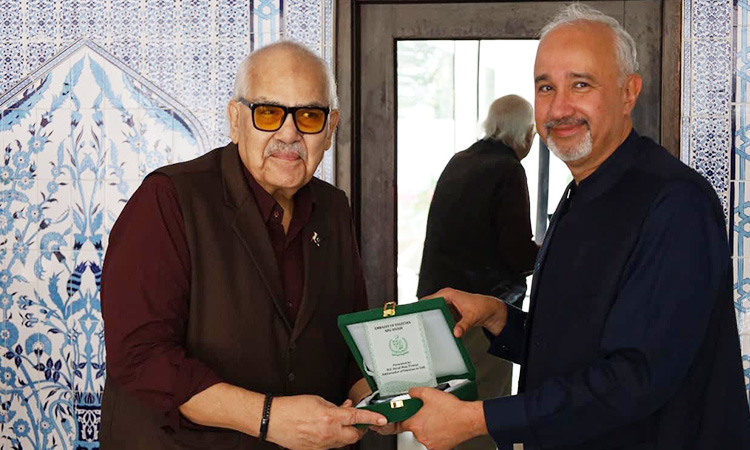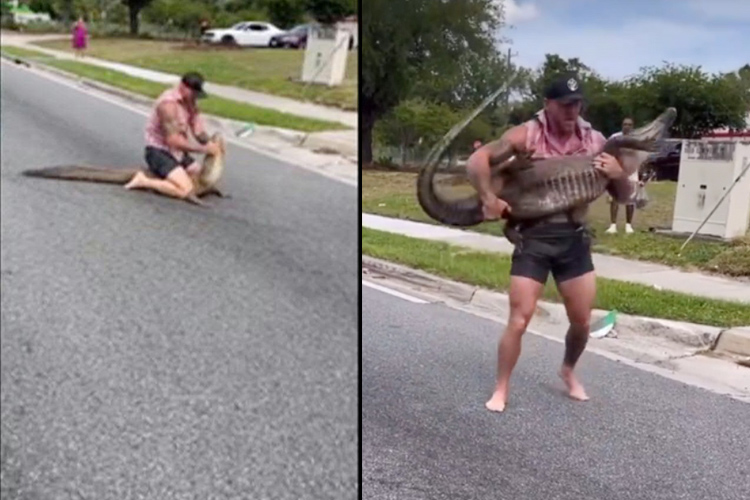Living in lap of Earth as child for centuries without doubt
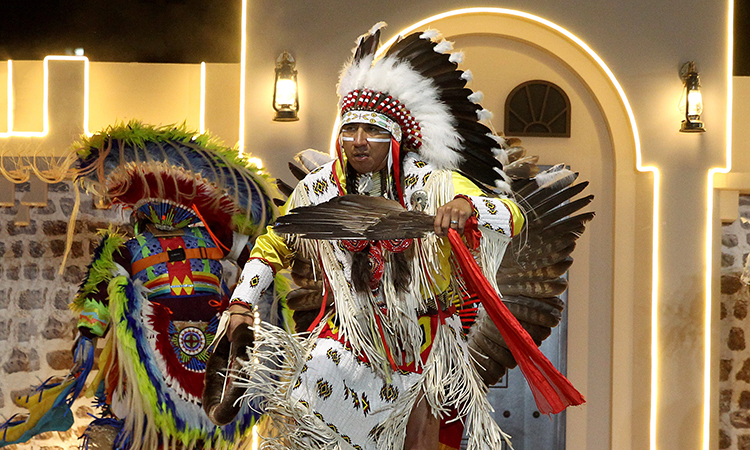
Monaka performs the traditional war dance at the Sharjah Heritage Days on Monday evening. Kamal Kassim / Gulf Today
The UAE residents and visitors were recently given a snippet of the lives and culture of the North American Indians, among the over 502 million multi-lingual indigenous tribes across 90 countries.
Specifically and a little bit before dusk on Monday, Sami Khan from Pakistan quipped: “It is my first time to see them. I am going to Google about them and the old United States!”
The five, overjoyed to share a part of their lives, were Larry Yazzie of the Meskwaki Nation in Iowa, Michael “Dancing Eagle Feathers” Roberts of the Choctaw and Chickasaw Nations in Oklahoma and his wife, Rebecca Roberts of the Taos Pueblo Nations in Northern New Mexico, New Miss Hampshire 2023 Tia-Alexi Roberts of the Narragansett Indian Nation, and Dom Watson of the Mvskoke/Muscogee Nation also in Oklahoma.
Part of the Native Pride Productions which Yazzie founded in 2004, they are among the 574 “federally-recognised” North American tribes by the US Government as others are only recognised state-wise. They were grateful that the US Embassy in Abu Dhabi invited them over for people-to-people connections at the Sheikh Zayed Festival in Abu Dhabi and the ongoing Ras Al Khaimah “Fine Arts Festival.”
Gulf Today watched them twice – before sundown and after the evening prayers – on Monday evening at the al fresco Sharjah Heritage Village, site of the ongoing Sharjah Heritage Days (SHD) of the Sharjah Institute for Heritage, under the patronage of His Highness Dr Sheikh Sultan Bin Mohammed Al Qasimi, Member of the UAE Supreme Council and Ruler of Sharjah.
On the festival theme “Connection,” Yazzie whose Indian name Monaka, means “The wolf digging the den for his family” – short for being a responsible man, said: “It is very important that we have been invited because to represent the US not only as a government but also us, being indigenous means we are still alive, still well. Our beautiful culture is still going strong because (we are allowed to practise) our way of life, our ceremonies, our prayers and keeping the humbleness as who we are as indigenous peoples. We must respect Mother Earth, much as we respect our mothers who nurture and love us.”
Dancing Eagle Feathers said that for a long time, the practice of the similar and varying traditions, songs and dances of the over 574 North American Indian nations in the USA were “outlawed for misconceptions we were worshipping something; but, we believe in one Supreme Being, the Creator of all mysteries and that we believe that all of us exist together with (all the nature around us) because we were all created by the Supreme Being.”
“No we are not animists. No, you should not be scared of us. There were small skirmishes between tribes before (the conquerors arrived) but there were not much killings involved. We do not kill everyone out there. We know that each person has a responsibility for his tribe and killing means a whole bunch of people would be affected,” he replied.
Dancing Eagle Feathers added: “We are very, very happy to do this. Absolutely, we are very, very grateful to the Sharjah Government and the US Embassy. By us coming over here, sharing our culture and our stories; the stories shared to us by our grandparents, it gives people a better understanding of who we are; us, native Americans.”
“We know that the people are very interested. They have been very, very open and welcoming. Whenever we are done with our dancing, they all want to come up to take pictures. There is a cultural barrier because we do not know what is allowed and what is not allowed. We are set apart by our cultures. But, it all comes down to respect, love, and understanding. We are provided by the Supreme Being of the same things,” he also said, pointing out – just like Monaka had stressed that the bottom line is unity in order for everyone to live and thrive “in this small world.”
Coming from different nations or tribes that have criss-crossed the astounding terrain and waterways of North America, particularly of the USA, way before the arrival of the first Europeans circa 16th to 17th centuries, the five individually performed with the tom-tom of hand-held powwow drums and chantings, the Traditional War Dance, Jingle Dress/Healing Dance, Fancy Shawl Dance, Grass Dance, and the Fancy Feather Dance – each with their distinct narratives.

